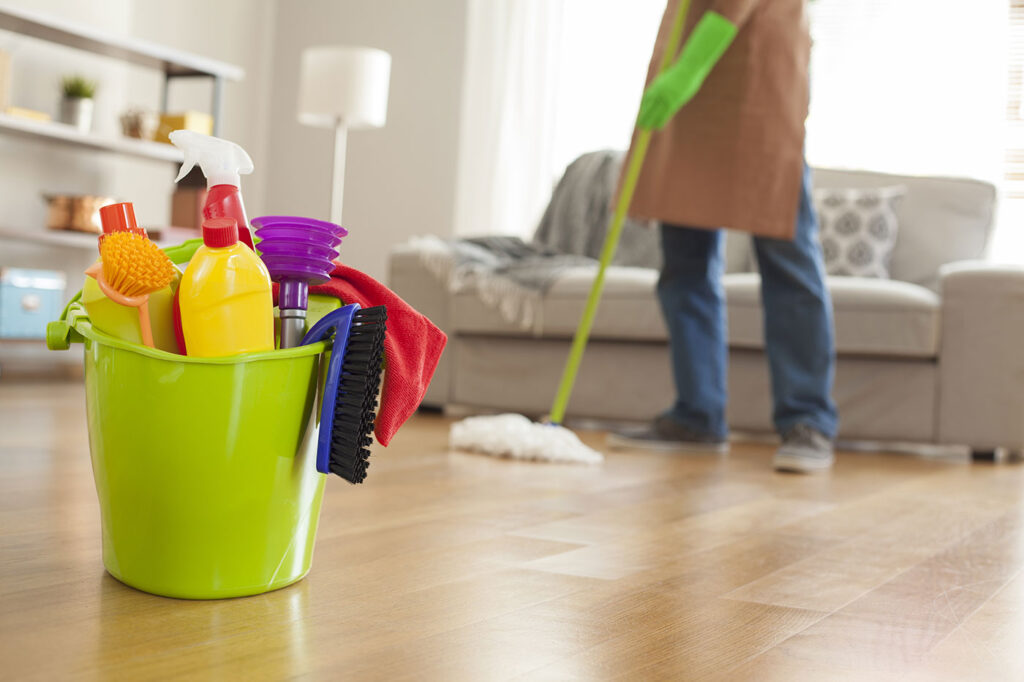Tenancy cleaning is a crucial aspect of renting out a property. Whether you’re a landlord preparing for new occupants or a tenant ensuring you receive your deposit back, understanding the ins and outs of tenancy cleaning is essential. This comprehensive guide provides valuable insights and practical tips to help you navigate the process with ease.
Overview of Tenancy Cleaning
Tenancy cleaning, also known as end of lease cleaning, is a thorough cleaning of a rental property before the tenant moves out. It involves cleaning every corner of the property, including bedrooms, bathrooms, kitchen, living areas, and outdoor spaces. The goal is to leave the property in pristine condition, meeting the expectations set out in the tenancy agreement.
Why Tenancy Cleaning Matters
Tenancy cleaning plays a crucial role for both landlords and tenants. For landlords, it ensures the property is well-maintained and ready for the next tenant, enhancing its appeal and value. For tenants, it is essential for securing the return of their security deposit and maintaining a positive relationship with the landlord.
Key Areas to Focus On
Effective tenancy cleaning requires attention to detail and thoroughness. Some key areas to focus on include:
- Kitchen: Clean appliances, countertops, cabinets, and sinks.
- Bathroom: Scrub tiles, clean fixtures, and sanitize surfaces.
- Living Areas: Vacuum carpets, dust furniture, and clean windows.
- Bedrooms: Wash bedding, dust surfaces, and vacuum floors.
- Outdoor Spaces: Sweep walkways, clean patio furniture, and remove debris.
Benefits of Professional Tenancy Cleaning
While tenants may undertake cleaning themselves, hiring a professional cleaning service offers several advantages. Professional cleaners have the expertise and equipment to ensure a thorough and efficient clean, saving time and effort for both landlords and tenants.
Common Challenges
Tenancy cleaning can present challenges, such as stubborn stains, mold, or grease buildup. Addressing these challenges requires the right cleaning products, tools, and techniques. Understanding how to tackle common cleaning issues is essential for achieving satisfactory results.
Legal Implications
In many jurisdictions, landlords are legally obligated to ensure the property is in a clean and habitable condition for new tenants. Failure to meet these standards may result in disputes or legal action. Therefore, understanding the legal implications of tenancy cleaning is crucial for both landlords and tenants.
Environmental Considerations
In addition to cleanliness, there is growing awareness of the environmental impact of cleaning products. Choosing eco-friendly cleaning solutions not only promotes sustainability but also creates a healthier indoor environment for occupants.
Tips for DIY Tenancy Cleaning
For tenants opting for a DIY approach to tenancy cleaning, here are some helpful tips:
- Create a Checklist: Develop a comprehensive cleaning checklist to ensure no area is overlooked.
- Gather Supplies: Stock up on cleaning supplies, including eco-friendly options where possible.
- Work Methodically: Clean one room at a time, starting from the top and working your way down.
- Seek Professional Help if Needed: If certain tasks seem daunting or time-consuming, consider hiring professional cleaners for those specific tasks.
Conclusion
Tenancy cleaning is a critical aspect of the rental process, ensuring properties are well-maintained and ready for new occupants. Whether you’re a landlord or a tenant, understanding the importance of tenancy cleaning and following best practices can help streamline the process and ensure satisfactory outcomes.
FAQs
Q: How much does tenancy cleaning typically cost?
A: The cost of tenancy cleaning varies depending on factors such as the size of the property and the level of cleaning required. On average, expect to pay between $150 to $400 for a standard cleaning service.
Q: Do I need to be present during tenancy cleaning?
A: While it’s not necessary to be present during tenancy cleaning, some tenants prefer to oversee the process to ensure their satisfaction. However, it’s essential to coordinate with the cleaning service or landlord in advance.
Q: Can I use regular household cleaning products for tenancy cleaning?
A: While regular household cleaning products can be effective for basic cleaning tasks, it’s advisable to use professional-grade products for tenancy cleaning, especially for stubborn stains or deep cleaning.
Q: How long does tenancy cleaning take?
A: The duration of tenancy cleaning depends on factors such as the size of the property and the level of cleaning required. On average, it can take anywhere from 4 to 8 hours to complete a thorough cleaning.
Q: What happens if the property fails the final inspection after tenancy cleaning?
A: If the property fails the final inspection due to cleanliness issues, the landlord may deduct cleaning costs from the tenant’s security deposit. It’s essential to address any concerns promptly to avoid disputes.
Q: Is professional tenancy cleaning mandatory?
A: While professional tenancy cleaning is not mandatory in all cases, many landlords include it as a requirement in the tenancy agreement. Tenants should review their lease agreement to understand their obligations.
Conclusion
Tenancy cleaning is a critical aspect of the rental process, ensuring properties are well-maintained and ready for new occupants. Whether you’re a landlord or a tenant, understanding the importance of tenancy cleaning and following best practices can help streamline the process and ensure satisfactory outcomes.
Check Also: https://pureendoftenancycleaning.co.uk/move-out-cleaning/


